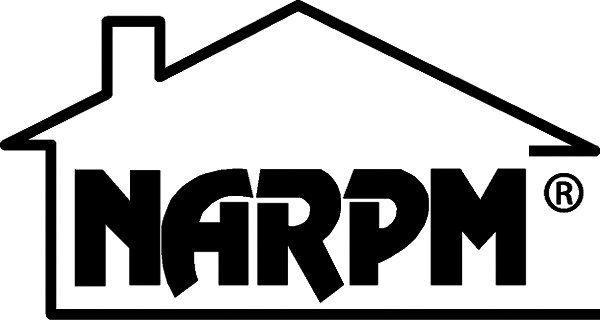San Antonio Landlords: Avoid Rental Nightmares With This Tenant Screening Checklist

As a landlord in San Antonio, you want to ensure that you're renting to trustworthy tenants who will pay rent on time and take care of your property. That's where a tenant screening checklist comes in handy.
It's your go-to tool for making informed decisions about potential tenants. As the famous saying goes, "An ounce of prevention is worth a pound of cure." So, don't skimp on screening potential tenants.
Right Tenant vs Fast Tenant: Why Screening Matters
It can be tempting to fill a vacant property with the first tenant who shows interest. But choosing a tenant without proper screening can lead to serious problems down the line, from missed rent payments to costly evictions.
According to a study by TransUnion, nearly 9 out of 10 landlords who conducted criminal background checks and reviewed credit reports said they found important information that impacted their tenant selection. In addition, landlords who conducted screening reported a 7% reduction in evictions compared to those who did not.
The right tenant can be a long-term asset, while the wrong tenant can cost you time, money, and headaches. They don’t pay rent on time or take care of the property, and they may even disturb the neighbors.
Fast tenants can lead to expensive mistakes, whereas the right tenants can be a landlord's best friend. So take the time to properly screen potential tenants, and choose the right one for your property. It may take a bit longer, but in the end, it's worth it.

Tenant Screening Checklist for San Antonio Landlords
The Tenant Screening Checklist for San Antonio Landlords is an essential tool for any landlord looking to rent out their property. This comprehensive checklist covers all the important aspects of tenant screening, from credit checks to rental history, to ensure you find the best tenants for your San Antonio property.
1. Screen the Rental Application
Screening a rental application is the first and extremely crucial step of tenant vetting. It helps landlords find a responsible tenant who will pay rent on time and take care of the property. A rental application typically includes information on the applicant’s
- employment,
- income,
- rental history,
- and personal references.
It may also include authorization to run a credit and background check. The application gives landlords a comprehensive picture of the applicant's financial and personal information, so they make an informed decision about whether to consider the potential tenant further or not. It's like reviewing a dating profile — you want to find the best match before you put in the effort to know them better!
2. Screen Them for Specific Policies
Informing the tenants about any specific policies related to the property can filter out all those who don’t fit the bill. It will save landlords and tenants time pursuing the wrong property and a mismatched tenant. Following are some criteria that can quickly weed out tenants who don’t match a property.
- Pet Policy: Does the property allow pets? Is the neighborhood pet-friendly?
- Is smoking allowed?
- How many occupants are allowed?
- What are the guest rules?
- What kind of parking is available?
3. Credit Check
Credit checks are important for tenant screening because they provide a snapshot of a potential tenant's financial responsibility. Just like you wouldn't lend money to your wild cousin who always forgets to pay you back, you want to make sure your tenants can actually afford to pay rent on time and take care of your property. A credit check helps landlords make an informed decision and avoid any nasty surprises down the road.
A credit check typically includes a review of an individual's credit history and credit score. This can include information about the
following financial decisions and more.
- Credit accounts, such as credit cards and loans
- Payment history
- Outstanding debts or collections
- Bankruptcies
- Foreclosures

4. Employment Verification
Employment verification is a crucial part of tenant screening as it helps landlords confirm that their potential tenant is currently employed and has a stable source of income. This ensures that the tenants will be able to pay rent on time and avoid any potential financial issues down the road.
By taking the time to verify a tenant's employment, you can make informed decisions about who you allow to rent your property and protect your investment.
5. Debt to Income Ratio
Debt to Income Ratio (DTI) is calculated by dividing the total amount of monthly debt payments by the person's gross monthly income. DTI is important for tenant screening because it gives landlords a good idea of whether their prospective tenants can afford to pay rent.
After all, you don't want tenants who are all bark and no bite, or in this case, all wishful thinking and no income. Knowing your tenants' DTI can save you a lot of headaches down the road.
6. Eviction History Check
Checking eviction history can help landlords protect themselves from potential financial loss or legal issues down the line. Let's face it, nobody wants to rent to someone who has a history of being evicted.
While a history of eviction can be a red flag, there may be some situations where renting to someone with a one-off eviction history could be acceptable. It's important for you to consider the individual circumstances of each applicant and make a decision based on all available information.
Ultimately, the goal is to find a reliable tenant who will pay rent on time and take care of the property.

7. Contact Previous Landlords
Contacting previous landlords is important because they can provide valuable insight into a potential tenant's rental history and behavior. When contacting previous landlords, you could ask questions about the following:
- The tenant's payment history
- Any damage to the property
- Attitude toward neighbors and other tenants
Basically, you want to get a sense of whether the tenant is a responsible renter who will take good care of your property. It's like calling references for a job candidate, but with fewer awkward phone conversations. Contacting previous landlords is especially important if the potential tenant has been evicted in the past.
8. Criminal Background Check
A criminal background check is important for tenant screening because it helps landlords ensure that their property is being rented to someone who is trustworthy and poses no threat to the community.
It typically involves a search of local, state, and federal criminal records to check for any criminal convictions or pending charges. While everyone deserves a second chance, it's important to make sure you're not renting to someone who has a history of criminal activity that could put you, your property, or other tenants at risk.
9. Check References
Checking references from tenants is crucial in verifying all the information provided by the tenant. Landlords can also get a better sense of the potential tenants’ character and rental history.
Acceptable references for tenants in San Antonio might include former landlords, employers, or personal references. Basically, you want to hear from people who can vouch for the tenant's reliability and responsibility.
10. Interview the Potential Tenant
Interviewing a potential tenant allows landlords to get to know the applicant on a more personal level and assess their communication skills, demeanor, and overall fit for the property. During the interview, landlords should ask questions related to the applicant's
- rental history,
- employment and income,
- lifestyle and habits,
- pets,
- and the number of occupants moving in.
It's also a good opportunity for the landlord to explain their expectations for the property and get a sense of whether the applicant is a good match. You want to make sure there's an alignment before committing to a long-term relationship!
Familiarize Yourself With San Antonio Fair Housing Laws
The Fair Housing Act is a federal law that prohibits discrimination in housing based on certain protected characteristics, including race, color, national origin, religion, sex, familial status, and disability. In addition to the federal law, San Antonio has its own fair housing ordinance that provides additional protections.
The San Antonio Fair Housing Ordinance prohibits discrimination in housing based on the same protected characteristics as the federal law, as well as sexual orientation, gender identity, and veteran status. The ordinance applies to all types of housing, including rental properties, sales, and financing.
Landlords should familiarize themselves with fair housing laws in San Antonio to ensure that they are not engaging in any discriminatory practices when vetting tenants. Discrimination can take many forms, including
- refusing to rent to someone based on their race or religion,
- imposing different rental terms or conditions on someone based on their familial status,
- or failing to make reasonable accommodations for a tenant with a disability.
If a landlord is found to have violated fair housing laws, they can face legal consequences, including fines and lawsuits. Additionally, discrimination can
harm a landlord's reputation and lead to a loss of potential tenants.
By familiarizing themselves with fair housing laws in San Antonio, landlords can ensure that they are treating all tenants fairly and equally, and avoid any legal or reputational consequences.
Finding The Right Tenant Screening Services
Finding the right tenant screening service may take a little time and effort, but it's an investment that can save you a lot of headaches and potential legal issues down the road.
You want a service that provides accurate and reliable information about potential tenants and uses up-to-date technology and data sources to ensure that the information they provide is current and accurate.
Cost is also an important factor. Tenant screening services can range from very affordable to quite expensive, so you'll want to find a service that fits your budget. Keep in mind that the cheapest option may not always be the best, so be sure to weigh the cost against the quality of service provided.
Finally, it's a good idea to do some research on the screening service you're considering. Look for reviews and testimonials from other
landlords or property managers to get a sense of their experience with the service. You can also check with industry organizations or local landlord associations for recommendations.
Finding the right tenant can be a daunting task, but a good screening service can make all the difference. You want to make sure you're getting reliable information without breaking the bank. So, do your research and
find a property manager who can offer screening that fits your needs and budget. And remember, just like finding the right tenant, finding the right screening service takes a little time and effort, but it's worth it in the end.








